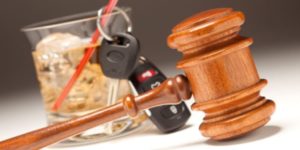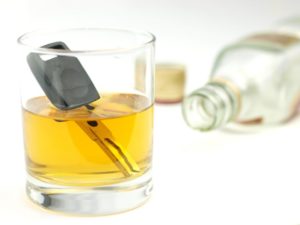DUI Law California
 There are approximately 150,000 DUI arrests in the state of California every year. As California’s most populous city, Los Angeles is responsible for a large portion of these statistics. If you’re among those who have been charged with DUI in Los Angeles, you are facing some potentially life changing consequences. You should contact a Los Angeles DUI defense lawyer as soon as possible.
There are approximately 150,000 DUI arrests in the state of California every year. As California’s most populous city, Los Angeles is responsible for a large portion of these statistics. If you’re among those who have been charged with DUI in Los Angeles, you are facing some potentially life changing consequences. You should contact a Los Angeles DUI defense lawyer as soon as possible.
Police Procedures During a DUI Arrest
DUI arrests in California can be complicated, which means that law enforcement often makes procedural mistakes that can negatively impact the prosecutorial case but can be beneficial to your defense. DUI investigations involve the following phases.
Contact C Robert Brooks, the Top Rated DUI Defense Attorney in Los Angeles
If you have ever been charged with DUI then you know that laws in California are complex and need a strong-headed person to present your defense. C Robert Brooks has been a criminal lawyer for 25 years with specialization in DUI defense. The leading DUI defense attorney in Los Angeles, Brooks is the defender you are looking for because a tough charge like DUI needs rock-solid defense to crack. With our foolproof strategies, your DUI charges can be reversed.
A DUI charge can mean license suspension, jail time, humiliation, or criminal record while a repeated offense can be even worse. When so much is at stake, it is natural to only bring in the best. C Robert Brooks is the DUI defense attorney in Los Angeles to turn to because we know what to anticipate in court and how to turn around the conviction. The science behind proving impaired driving needs great understanding which is Brooks’ area of expertise. We can turn the odds in your favor by winning you the best possible solution. Be it your first DUI offense or third, we promise you undivided attention and commitment all the way.
The Traffic Stop
In order for a police officer to stop you, they must have a legally valid reason. Here are some of the acceptable reasons for a stop:
- The officer observed a driving pattern consistent with drunk driving, such as weaving in and out of lanes or making a wide turn.
- The officer observed you committing a moving violation.
- There is something wrong with your vehicle, such as a tail light out, expired tag, et cetera.
- You are stopped in a legally sanctioned DUI checkpoint.
- You are involved in an accident.
Police officers can’t stop you on a hunch that you’re drunk. If they are unable to articulate why they stopped you, your attorney may be able to get your charges dropped.
Physical Observations
Once the officer has your car stopped, they will begin observing your physical appearance, your demeanor, and your motor skills. Some of the physical indicators that the police use to determine intoxication are:
- Slurred speech
- Bloodshot eyes
- The odor of an alcoholic beverage
- Unsteady stance or gait
- Fumbling hands
Physical indicators alone are never proof of intoxication, but they are used by police officers to build probable cause for an arrest.
Field Sobriety Exercises
In the state of California, roadside sobriety exercises are voluntary. Even when sober, many people have difficulty with these tests, so it’s rare that a video of field sobriety exercises helps the defendant’s case. The field sobriety exercises that officers usually administer are:
The Walk and Turn: The driver must take nine heel-to-toe steps, perform a 180-degree pivot, and take nine heel-to-toe steps back.
One-Leg Stand: The driver lifts either foot six inches from the ground and counts, 1001, 1002 . . . up to 1030.
Horizontal Gaze Nystagmus: The defendant follows a point at the end of a pen or similar object with only with their eyes. The officer observes the eyes’ movement for lack of smooth pursuit, which indicates intoxication.
The officer has an obligation to conduct all exercises on a clear, well-lit surface that’s safe from motorists. They should also explain and demonstrate each exercise to ensure that the driver understands them.
Contact his Los Angeles office for a free initial consultation.
Contact UsImplied Consent Warning
 When you accept your California driver’s license or drive on California roads with an out-of-state license, you are implying that you will consent to a breath test upon request by a police officer. If you refuse, your license will be suspended by the DMV. The officer should read you the “implied consent” warning from a prepared text to remind you of this obligation. This usually occurs after the officer has made the determination to arrest based upon other phases of the investigation.
When you accept your California driver’s license or drive on California roads with an out-of-state license, you are implying that you will consent to a breath test upon request by a police officer. If you refuse, your license will be suspended by the DMV. The officer should read you the “implied consent” warning from a prepared text to remind you of this obligation. This usually occurs after the officer has made the determination to arrest based upon other phases of the investigation.
Breathalyzer and other BAC Testing
In most cases, if you agree to a BAC test, it will be a breath test. If for some reason your breath test indicates that you little or no alcohol in your system, the police may require a urine test. In the event of an accident with serious injuries, the police can require a forced blood draw, which does not require your consent.
License Seizure
If you have a valid license, the police will confiscate it and issue you a 30-day driving permit. The DMV will begin the process of suspending your license. You need to apply for a hearing within 10 days of your arrest or your suspension will go through automatically.
BAC Limits Under California Law
Like most states, the legal blood alcohol concentration (BAC) limit for drivers over 21 is .08% in California. If you’re driving a commercial truck, the legal limit is .04%. If you have a BAC of .15% or higher, you could face enhanced penalties. If you are under the age of 21 and you have a BAC of .01% or higher, you could face civil or criminal penalties depending on the level.
LA DUI Defense Lawyer
Understanding the charges that you’re facing after a DUI arrest can be beneficial, but it’s essential that you contact a qualified DUI defense lawyer in Los Angeles to handle your case. A diligent lawyer, like C. Robert Brooks, Attorney at Law, can represent you in both the administrative and criminal portions of your case. Once attorney Brooks has reviewed the discovery evidence against you and deposed all witnesses, he can work on building an ironclad defense. Contact his Los Angeles office for a free initial consultation.


Recent Comments